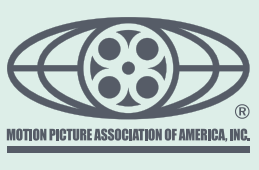MPAA Offers $20,000 Grants For “Unbiased” Piracy Research
jeudi 19 juin 2014 à 20:08 Late last year a study from European researchers revealed that the Megaupload shutdown had a negative effect on the box office revenues of smaller films.
Late last year a study from European researchers revealed that the Megaupload shutdown had a negative effect on the box office revenues of smaller films.
The researchers suggested that the decrease in sales may be the result of a drop in word-of-mouth promotion from pirates, which affects smaller movies more since they have less advertising budget.
The MPAA wasn’t happy with the media coverage the study generated and went on the defensive citing two Carnegie Mellon University studies to show that piracy harms sales.
Interestingly, it failed to disclose that those findings came from research that was supported by a $100,000 grant from the MPAA.
While we trust that the research is solid, the above shows that academic research plays an important role in the MPAA’s lobbying efforts. For this reason, the Hollywood group has recently started a grants program, hoping to enlist more academics to conduct copyright-related research.
The MPAA is now accepting research proposals on a series of predefined topics. They include the impact of copyright law on innovation and the effectiveness of DMCA takedown notices. The best applications will be awarded a $20,000 grant.
“We want to enlist the help of academics from around the world to provide new insight on a range of issues facing the content industry in the digital age,” says MPAA CEO and former U.S. Senator Chris Dodd.
According to the MPAA boss, academic researchers can contribute to understanding the changes the industry faces by providing unbiased insights.
“We need more and better research regarding the evolving role of copyright in society. The academic community can provide unbiased observations, data analysis, historical context and important revelations about how these changes are impacting the film industry and other IP-reliant sectors,” Dodd notes.
The MPAA clearly sees academic research as an important tool in their efforts to ensure that copyright protections remain in place, or are strengthened if needed.
This outreach to academics may in part be fueled by what their ‘opponents’ are doing. Google, for example, is heavily supporting academic research on copyright-related projects in part to further their own interests.
Both sides clearly steer researchers by giving them precise directions on the grounds they want covered. It’s now up to the academics to make sure that they don’t become pawns in a much bigger fight, and that their research is conducted and results presented in an objective manner.
Source: TorrentFreak, for the latest info on copyright, file-sharing and anonymous VPN services.




